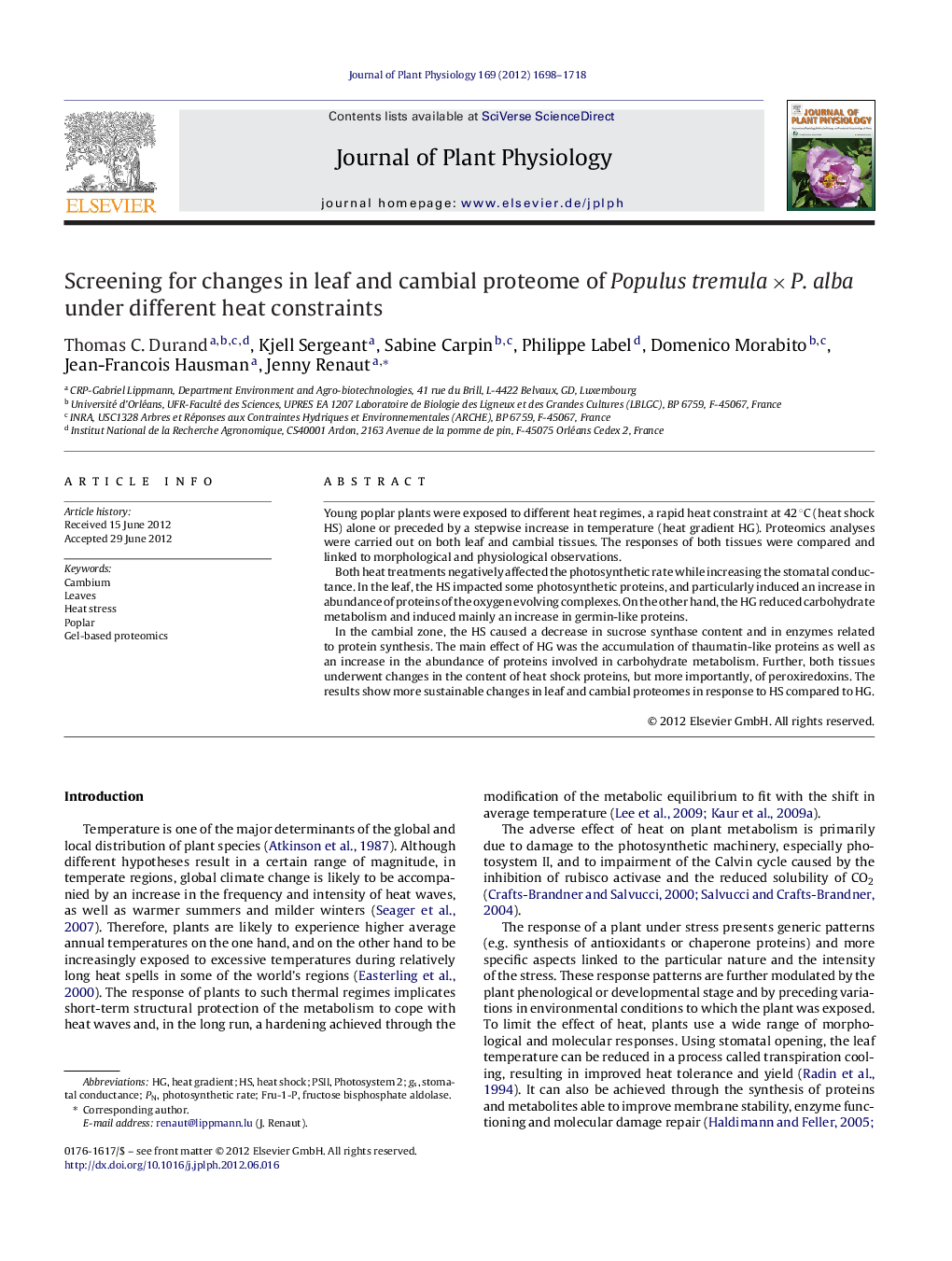| Article ID | Journal | Published Year | Pages | File Type |
|---|---|---|---|---|
| 2056822 | Journal of Plant Physiology | 2012 | 21 Pages |
Young poplar plants were exposed to different heat regimes, a rapid heat constraint at 42 °C (heat shock HS) alone or preceded by a stepwise increase in temperature (heat gradient HG). Proteomics analyses were carried out on both leaf and cambial tissues. The responses of both tissues were compared and linked to morphological and physiological observations.Both heat treatments negatively affected the photosynthetic rate while increasing the stomatal conductance. In the leaf, the HS impacted some photosynthetic proteins, and particularly induced an increase in abundance of proteins of the oxygen evolving complexes. On the other hand, the HG reduced carbohydrate metabolism and induced mainly an increase in germin-like proteins.In the cambial zone, the HS caused a decrease in sucrose synthase content and in enzymes related to protein synthesis. The main effect of HG was the accumulation of thaumatin-like proteins as well as an increase in the abundance of proteins involved in carbohydrate metabolism. Further, both tissues underwent changes in the content of heat shock proteins, but more importantly, of peroxiredoxins. The results show more sustainable changes in leaf and cambial proteomes in response to HS compared to HG.
